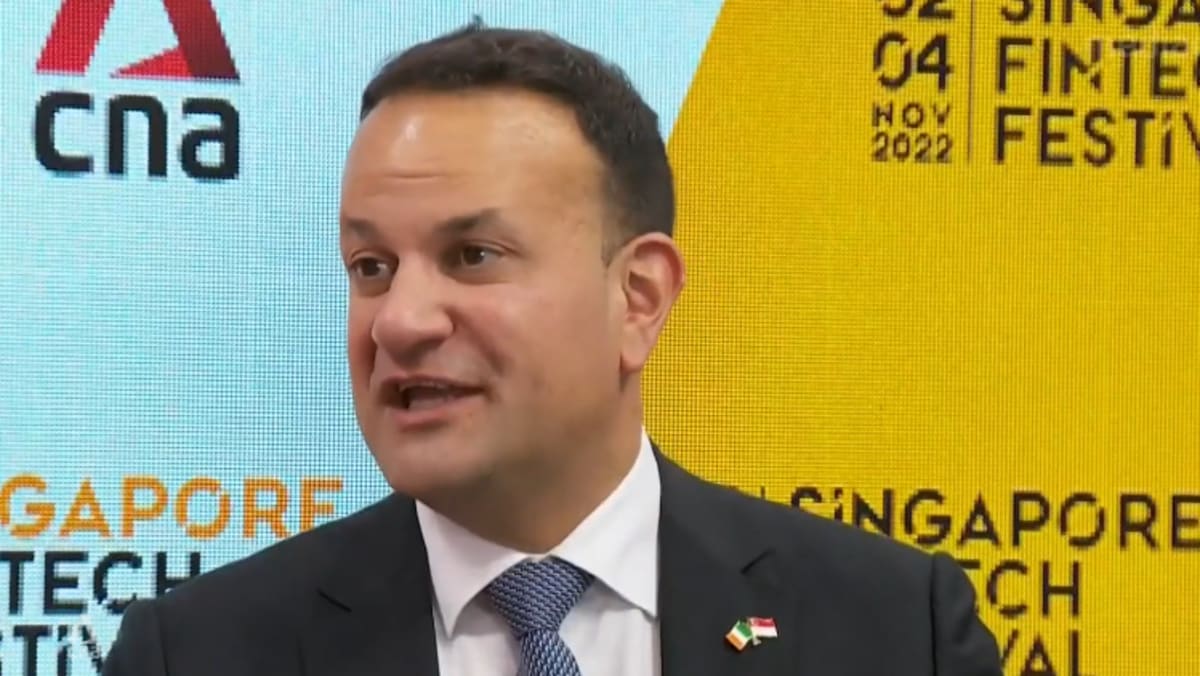
IRELAND, SINGAPORE SHARE SIMILARITIES
Mr Varadkar said that apart from being island economies with populations of about five million, he noted that both Ireland and Singapore are part of an international trading system that is open to the world and benefits from globalisation.
He added that both countries are prime choices for firms to base their regional headquarters.
“We are both very open to the world, both very safe countries. The same way people often choose Ireland to be their base for their European operations, people choose Singapore to be their base in Southeast Asia,” Mr Varadkar, who is also Ireland’s minister for enterprise, trade and employment, told CNA’s Olivia Marzuki from the sidelines of the SFF.
As such, it would be ideal for Irish and Singaporean companies to trade in both directions, he added.
TRADING PARTNERS
Singapore is Ireland’s largest trading partner in Southeast Asia and that partnership has grown in importance over the years.
Nearly 100 Enterprise Ireland-supported companies export to Singapore, while 300 export across ASEAN, according to the country’s Department of Enterprise, Trade and Employment.
While building up ties in wider Asia – ramping up engagement and trade links with China and India on top of its long-standing partnership with Japan and South Korea, Mr Varadkar said that Singapore remains “the centre point for Ireland in the Southeast Asian region”.
Earlier this year, Irish Prime Minister Micheal Martin and agriculture, food and marine minister Charlie McConalogue, visited Singapore to reaffirm ties and boost trade between the nations.
Trade between Ireland and Singapore amounts to US$14 billion every year, said Mr Varadkar.
Exports from Ireland to Singapore include medical devices and pharmaceuticals, as well as beverage and agricultural products, most notably Irish ducks, which are found in multiple local restaurants.
COOPERATION ON GREEN ENERGY
Apart from fintech, Mr Varadkar said that Ireland is keen on stronger collaboration particularly in the green energy sector, as both nations share a similar disadvantage – being energy dependent on others.
“There’s a huge energy challenge … particularly for countries that are not energy independent like our countries, so a lot of cooperation (needs to happen) around renewables,” he said.
Ireland, which is highly dependent on imports for its two largest energy sources – oil and natural gas – is looking at building up its clean energy capabilities to reduce reliance and to meet its climate targets.
Mr Varadkar said that his country has a “steep curve to climb”, particularly in meeting its goal of phasing out the sale of petrol and diesel cars by 2030, and making the switch to electric vehicles.
The country is also working towards producing 80 per cent of its electricity from renewable energy, up from its current 40 per cent. This means huge investments in green energy, including offshore wind power, solar power and hydrogen, Mr Varadkar said, adding that this is an area in which both Ireland and Singapore possess knowledge and talent.
“There are a lot of Irish firms and Singaporean firms involved in this (green) space, particularly in energy and engineering, so I think there are huge economic opportunities for both countries in that sense,” Mr Varadkar said.
SMALL NATIONS VULNERABLE
Both countries can benefit from being more energy independent, said Mr Varadkar, drawing parallels to small nations’ vulnerability to global geopolitical turbulence.
He cited the COVID-19 pandemic and its impact on supply chains, the Ukraine war, tensions between powerful nations, and the inflation crisis as challenges that his country and Singapore have had to face in recent years.
“I always feel that for a small country you’re kind of like a small raft at sea and you have to make sure you catch the waves and you don’t allow them to knock you over,” he said.
“I think post-pandemic we’re going to see a pause, a lull in globalisation … means we are going to see more friend-shoring and reshoring and for very globalised countries like Ireland and Singapore, these are significant risks,” he added.
